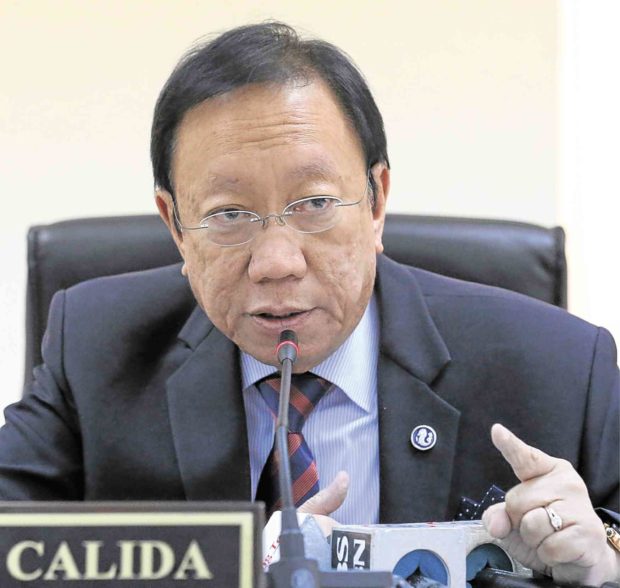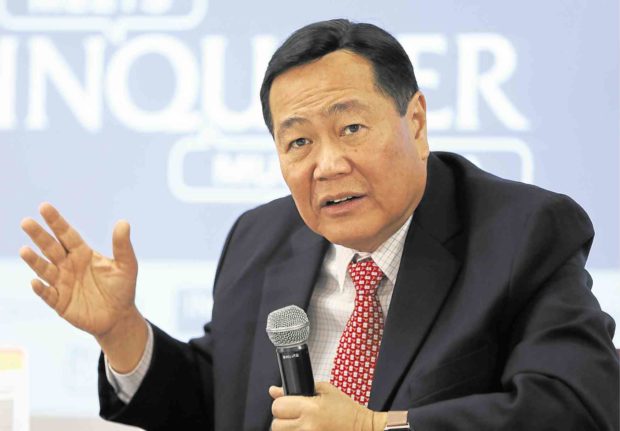SC asked to inhibit Carpio from WPS case
The Office of the Solicitor General (OSG) on Thursday filed a motion asking the Supreme Court to inhibit Senior Associate Justice Antonio Carpio from participating in a writ of kalikasan petition seeking to compel the government to protect, preserve and rehabilitate the environment in Panatag (Scarborough) Shoal, Ayungin (Second Thomas) Shoal and Panganiban (Mischief) Reef in the West Philippine Sea (WPS).
The petition, filed by a group of fishermen led by Monico Abogado and assisted by the Integrated Bar of the Philippines and Free Legal Assistance Group, will be heard by the Supreme Court during oral arguments set for Tuesday next week.
“It is interesting that even before the OSG filed its motion for inhibition, Justice Carpio already told the media that he will not inhibit in this case. This puts the OSG in a bind. Our motion will be an exercise in futility if the issue of his inhibition will be solely left for him to decide. It should be the Supreme Court, as a collegial body, which should decide on our motion,” Solicitor General Jose Calida said in a statement.
The grounds cited by the OSG for Carpio’s inhibition are his supposed bias and manifest partiality, “as evidenced” by his active participation in the South China Sea arbitral proceedings; and his continuing public pronouncements against the actions taken by the government in relation to the arbitral ruling.
The OSG said that the New Code of Judicial Conduct, which was promulgated by the Supreme Court, demands the disqualification of a judge who is unable to decide a case impartially or who appears to a reasonable observer that he is unable to decide impartially.
Part of PH team
In addition, the code enumerates instances when a judge is mandated to recuse himself from handling and deciding a case, such as when he has personal knowledge of disputed evidentiary facts concerning the proceedings, or he previously served as a lawyer in the matter in controversy.
“Carpio himself acknowledged that he was part of the team which handled the case of the Philippines in the SCS arbitral proceedings before the International Arbitral Tribunal. The case involved the disputed maritime resources in the West Philippine Sea, which are at issue in the Abogado petition,” Calida said.
According to the OSG, Carpio’s mere appearance as a representative in the arbitral proceedings was sufficient to disqualify him from sitting on and deciding the Abogado petition.
Having represented the Philippines before the arbitral tribunal, Carpio, according to Calida, “cannot sincerely claim the neutrality or impartiality demanded by judicial ethics and due process of law.”
“Justice Carpio’s participation before the South China Sea arbitral tribunal and knowledge of the facts and issues therein, coupled with his personal pronouncements and issuances leads to the impression he has already reached a conclusion and prejudged this case, even before the petitioners can present their case,” Calida said.
In its motion, the OSG stated that through his public statements on the arbitral award, Carpio has shown a “penchant for projecting a foreign policy regardless of its alignment with the policies of the current administration.”
For comprehensive coverage, in-depth analysis, visit our special page for West Philippine Sea updates. Stay informed with articles, videos, and expert opinions.

